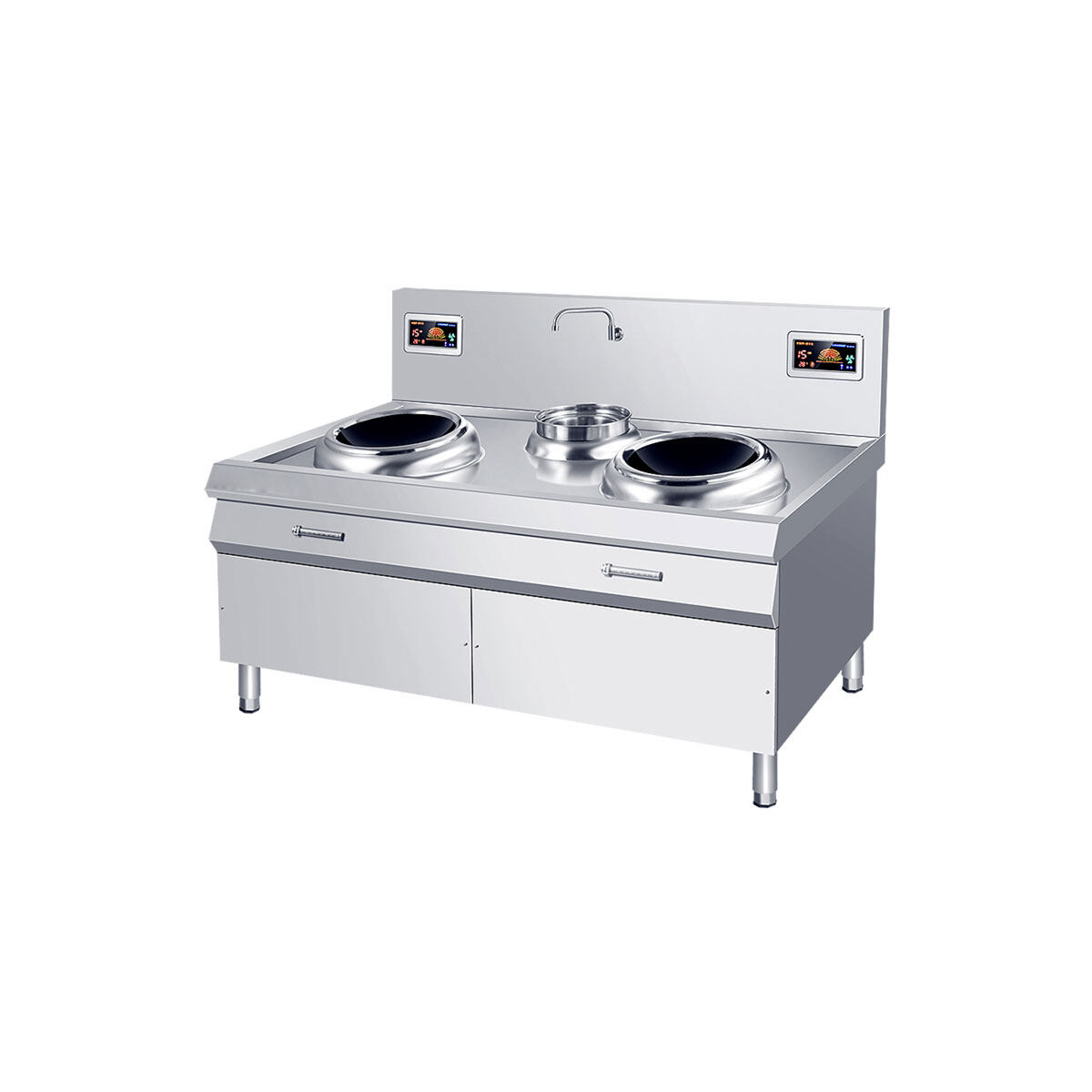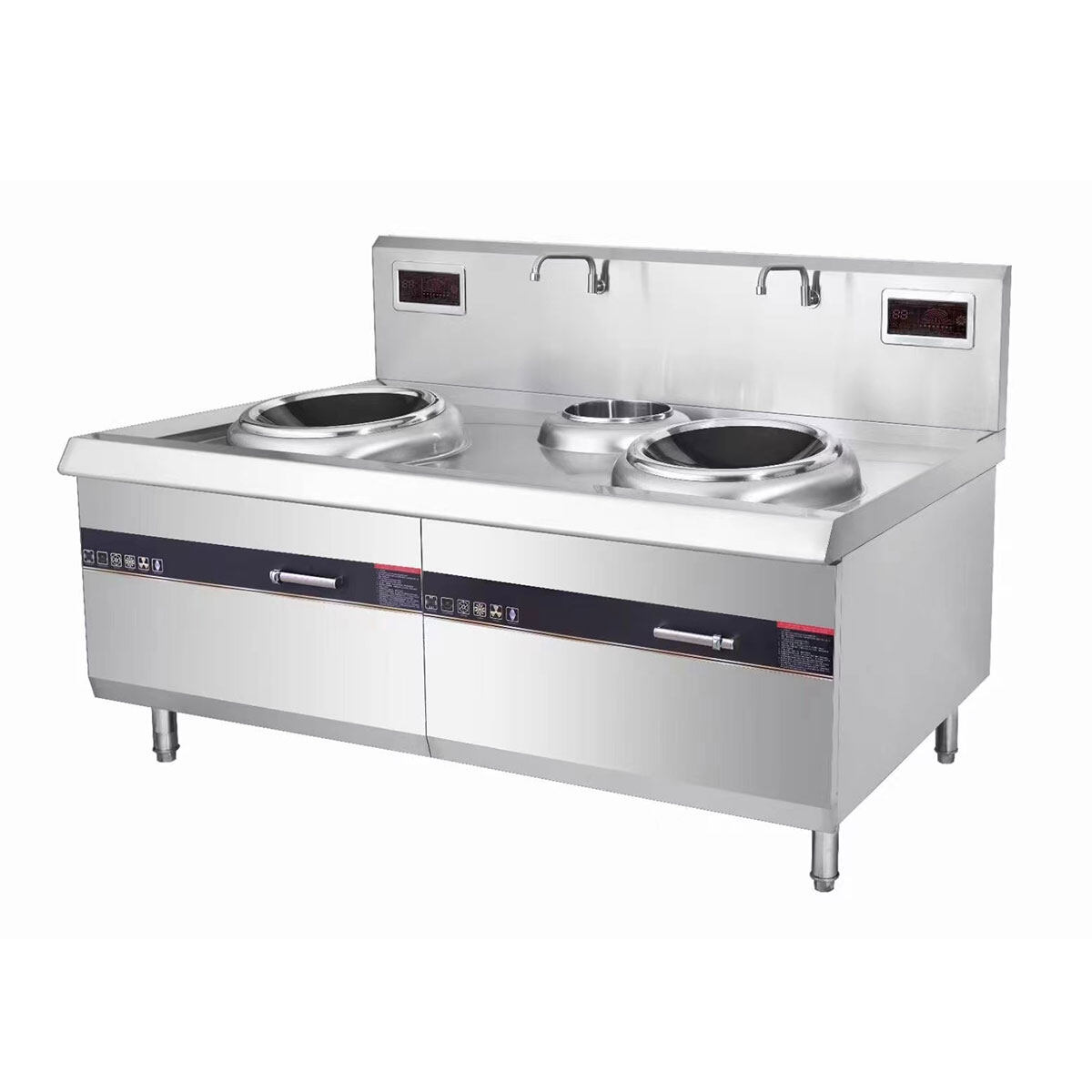Email format error
Email cannot be empty
Email already exists
6-20 characters(letters plus numbers only)
The password is inconsistent
Email format error
Email cannot be empty
Email does not exist
6-20 characters(letters plus numbers only)
The password is inconsistent


The culinary world has undergone significant transformations in recent years, thanks in part to advancements in technology. One key player in this evolution is the commercial cooking machine exporter. These exporters play a pivotal role in revolutionizing kitchens around the globe by providing state-of-the-art cooking equipment that enhances efficiency, consistency, and innovation in food preparation. This blog delves into the world of commercial cooking machine exporters, exploring their impact, benefits, challenges, and future trends.
Understanding the Role of a Commercial Cooking Machine Exporter
What is a Commercial Cooking Machine Exporter?
A commercial cooking machine exporter is a business or individual that specializes in the international trade of cooking equipment designed for commercial use. These machines range from industrial ovens and fryers to mixers and food processors. Exporters connect manufacturers with buyers worldwide, ensuring that high-quality cooking machinery reaches restaurants, hotels, catering companies, and other food service establishments across different countries.
The Importance of Commercial Cooking Machine Exporters
The role is crucial in today's globalized economy. These exporters facilitate the distribution of innovative cooking technologies, enabling culinary professionals to improve their operations and deliver exceptional dining experiences. By providing access to advanced machinery, exporters help food businesses enhance their productivity, maintain consistent quality, and meet the growing demands of their customers.
Benefits of Utilizing Commercial Cooking Machines
Enhanced Efficiency and Productivity
One of the primary advantages of using commercial cooking machines is the significant boost in efficiency and productivity. High-capacity equipment allows chefs and kitchen staff to prepare larger quantities of food in less time, reducing labor costs and increasing output. For instance, industrial mixers can handle dough and batter preparations much faster than manual methods, while commercial ovens can bake multiple trays of food simultaneously.
Consistency in Food Quality
Consistency is a key factor in the food industry, and commercial cooking machines excel in this aspect. Automated equipment ensures that food is prepared with the same quality and precision every time. This consistency is crucial for maintaining customer satisfaction and building a reputable brand. For example, a commercial deep fryer with precise temperature control guarantees that every batch of fried food is cooked to perfection, eliminating variations that can occur with manual frying.
Innovation and Versatility
Commercial cooking machines are designed to cater to a wide range of culinary needs. From sous-vide cookers to multi-functional food processors, these machines offer versatility that allows chefs to experiment with new recipes and cooking techniques. This innovation not only enhances the culinary experience but also enables food businesses to stay competitive by offering unique and diverse menu options.
Challenges Faced by Commercial Cooking Machine Exporters
Navigating International Regulations
One of the significant challenges for a cooking machine exporter is navigating the complex web of international regulations and standards. Different countries have varying requirements for safety, quality, and environmental impact, making it essential for exporters to stay informed and compliant. Failure to meet these standards can result in costly delays, fines, or even the rejection of shipments.
Managing Logistics and Supply Chain
The logistics involved in exporting commercial cooking machines can be daunting. These machines are often bulky and require careful handling during transportation to prevent damage. Exporters must coordinate with manufacturers, shipping companies, and customs officials to ensure smooth delivery. Additionally, supply chain disruptions, such as those caused by geopolitical tensions or global pandemics, can pose significant challenges.
Building Trust and Relationships
Establishing trust and building strong relationships with international clients is crucial for a cooking machine exporter. Buyers need assurance that the machines they purchase are of high quality and will perform as expected. Exporters must provide excellent customer service, transparent communication, and reliable after-sales support to maintain a positive reputation and foster long-term partnerships.
The Global Market for Commercial Cooking Machines
Key Markets and Growth Trends
The demand for commercial cooking machines is growing steadily across various regions, driven by the expansion of the food service industry. North America and Europe are significant markets due to their well-established restaurant and hospitality sectors. Meanwhile, Asia-Pacific is emerging as a lucrative market, with rapid urbanization, increasing disposable incomes, and a burgeoning food culture fueling demand.
Popular Types of Commercial Cooking Machines
Several types of commercial cooking machines are particularly popular among buyers. These include:
- Commercial Ovens: Convection ovens, combi ovens, and pizza ovens are essential for bakeries, pizzerias, and restaurants.
- Industrial Mixers: Used for dough mixing, batter preparation, and other large-scale mixing needs.
- Deep Fryers: Vital for fast-food chains and establishments that specialize in fried foods.
- Grills and Griddles: Ideal for cooking meats, vegetables, and breakfast items.
- Food Processors: Multi-functional machines that handle chopping, slicing, dicing, and pureeing.
Innovations in Commercial Cooking Machines
Smart Cooking Technology
The integration of smart technology is revolutionizing commercial cooking machines. Modern equipment is equipped with sensors, touchscreens, and connectivity features that allow for precise control and monitoring. Smart ovens, for example, can adjust cooking times and temperatures automatically based on the type of food being prepared, ensuring optimal results with minimal human intervention.
Energy Efficiency and Sustainability
Sustainability is a growing concern in the food industry, and commercial cooking machines are evolving to meet these demands. Manufacturers are developing energy-efficient equipment that reduces power consumption and minimizes environmental impact. Induction cooktops, for instance, are more energy-efficient than traditional gas or electric stoves, offering faster cooking times and lower energy costs.
Automation and Robotics
Automation is another exciting trend in commercial cooking machines. Robotic chefs and automated cooking stations are becoming more common, especially in high-volume kitchens. These machines can perform repetitive tasks with high precision, freeing up human chefs to focus on more creative aspects of cooking. Automated machines also enhance food safety by reducing the risk of contamination.
Choosing the Right Commercial Cooking Machine Exporter
Assessing Quality and Reliability
When selecting an exporter, it is essential to assess the quality and reliability of their products. Look for exporters who partner with reputable manufacturers known for their high standards and innovative designs. Reading customer reviews and seeking recommendations from industry peers can also provide valuable insights into the reliability of an exporter.
Evaluating Customer Support
Excellent customer support is a hallmark of a trustworthy exporter. Ensure that the exporter offers comprehensive support services, including installation assistance, user training, and maintenance. Responsive customer service can make a significant difference in addressing any issues that arise after purchase and ensuring the longevity of the equipment.
Considering Cost and Value
While cost is an important factor, it should not be the sole determinant when choosing an exporter. Consider the overall value offered by the exporter, including the quality of the machines, warranty terms, and after-sales support. Investing in high-quality equipment may have higher upfront costs but can result in long-term savings through improved efficiency and durability.
Future Trends in Commercial Cooking Machine Exports
Growing Demand for Customization
As the food service industry continues to evolve, there is a growing demand for customized commercial cooking machines. Restaurants and catering businesses seek equipment tailored to their specific needs, from unique cooking processes to specialized features. Exporters who can offer customization options will be well-positioned to meet this demand and attract a broader clientele.
Expansion into Emerging Markets
Emerging markets present significant growth opportunities for commercial cooking machine exporters. Regions such as Latin America, Africa, and Southeast Asia are experiencing rapid urbanization and an expanding middle class, leading to increased demand for food services. Exporters who can navigate the unique challenges of these markets, such as varying infrastructure and regulatory environments, can tap into a vast potential customer base.
Integration with AI and IoT
The integration of Artificial Intelligence (AI) and the Internet of Things (IoT) is set to transform commercial cooking machines further. AI-powered equipment can analyze data and optimize cooking processes in real-time, while IoT connectivity enables remote monitoring and control. These advancements will enhance efficiency, reduce waste, and provide valuable insights for improving kitchen operations.
Conclusion
The role of the commercial cooking machine exporter is more important than ever in today’s dynamic culinary landscape. By providing access to cutting-edge cooking equipment, these exporters help food service businesses around the world enhance their operations, maintain consistency, and innovate their offerings. Despite the challenges they face, the exporters are well-positioned to thrive in a growing market, driven by technological advancements and evolving consumer demands.
As the industry continues to evolve, staying informed about the latest trends and developments will be crucial for both exporters and buyers. Whether it’s through adopting smart cooking technology, embracing sustainability, or exploring new markets, the future of commercial cooking machines promises to be exciting and transformative.